How the SEC Regulates Stock and Crypto Trading in the US
Learn how the SEC ensures transparency and investor protection in US stock and crypto markets.
 Writen by:
Arslan Ali But
12 February 2025
8 minutes read
Writen by:
Arslan Ali But
12 February 2025
8 minutes read

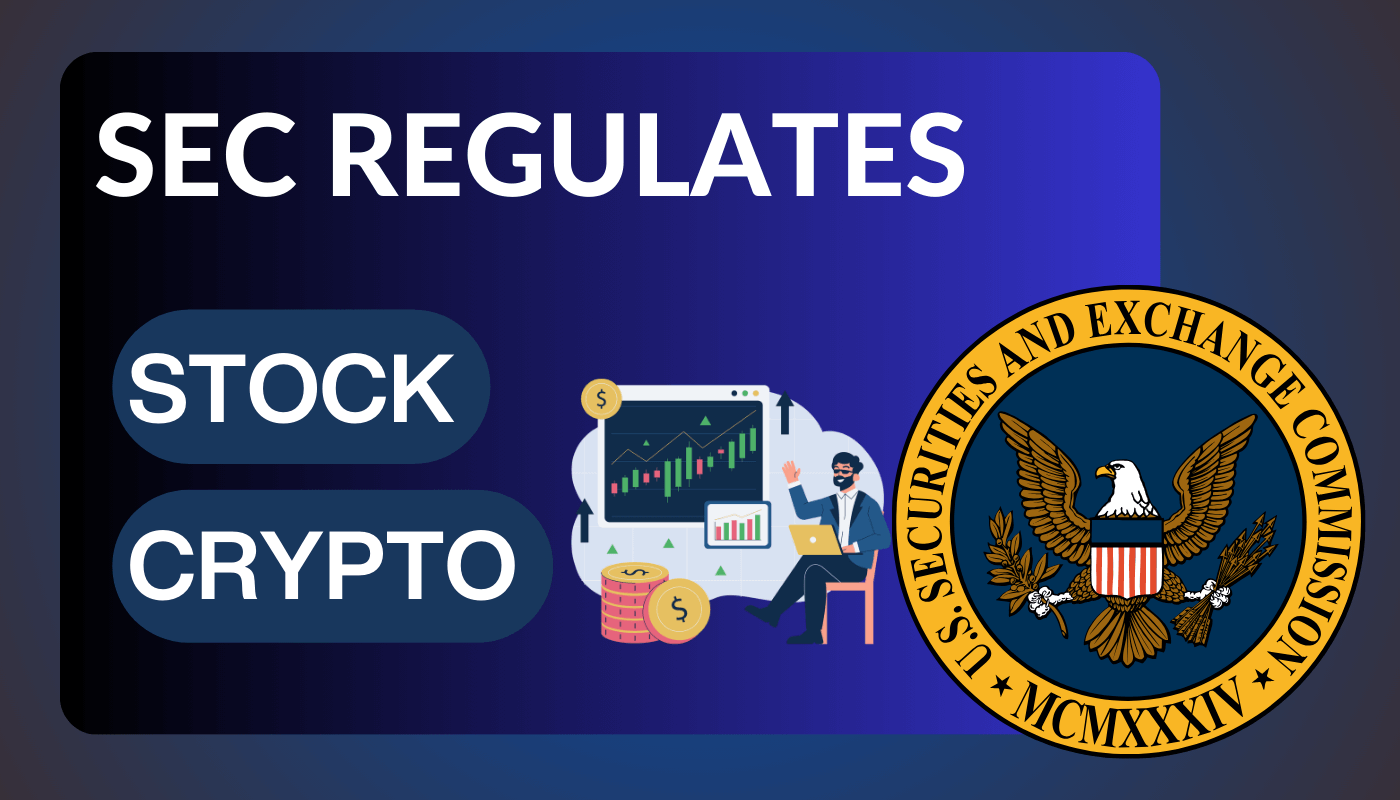
The Securities and Exchange Commission (SEC) serves as the cornerstone of financial regulation in the United States, overseeing stock and crypto markets to ensure fairness and transparency. Established in 1934 during the Great Depression, the SEC has played a vital role in safeguarding investor confidence and promoting stability in financial markets.
With its comprehensive framework, the SEC enforces strict regulations to prevent fraud, ensure market integrity, and protect investors. From stocks to emerging crypto assets, the SEC’s influence shapes how these markets operate. This article explores how the SEC regulates trading, highlighting its responsibilities and the impact on traders and businesses.
What is the SEC?
The Securities and Exchange Commission (SEC) was established in 1934 in response to the stock market crash of 1929 and the ensuing Great Depression. Its primary goal was to restore public trust in financial markets by creating a regulatory framework that promotes transparency and accountability. As an independent federal agency, the SEC enforces securities laws, regulates financial markets, and ensures investor protection.
Core Mission:
- Protect Investors: Safeguarding individuals from fraud and unfair practices.
- Maintain Fair and Efficient Markets: Ensuring transparent trading processes.
- Facilitate Capital Formation: Helping businesses raise funds while adhering to securities laws.
Scope of Authority:
The SEC's jurisdiction extends across securities exchanges like NYSE and NASDAQ, broker-dealers, investment advisers, and mutual funds. It also oversees public company disclosures to ensure that investors receive accurate financial information.
In recent years, the SEC has expanded its oversight to the cryptocurrency market, regulating digital assets and crypto platforms to address fraud and market manipulation. For example, the SEC actively monitors major stock exchanges and penalizes entities that fail to comply with securities laws, such as high-profile cases involving insider trading or misleading disclosures. This broad scope ensures integrity and investor confidence across traditional and emerging financial markets.
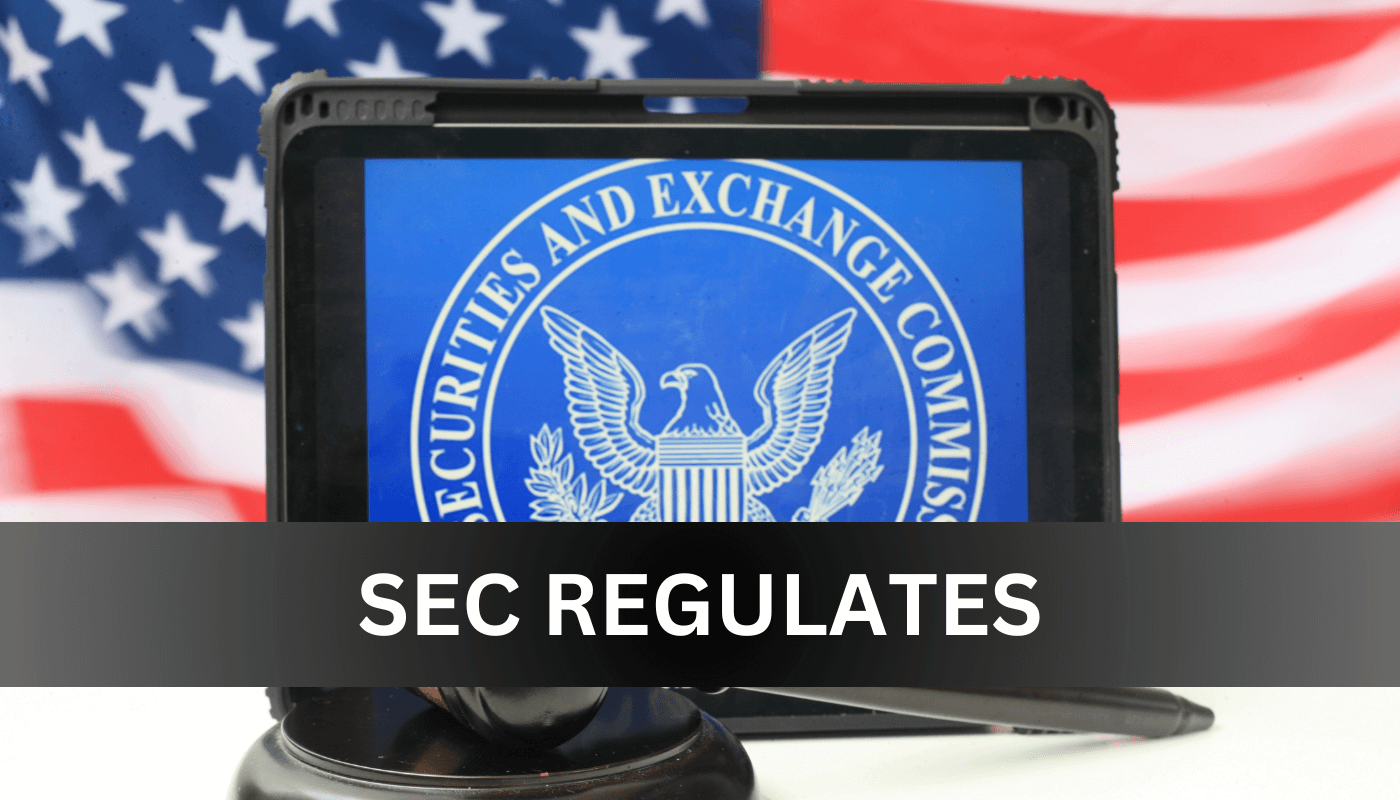
Key Responsibilities of the SEC
The SEC plays a pivotal role in maintaining order and integrity in the US financial markets. Its key responsibilities are divided into three core areas:
a. Enforcing Securities Laws:
The SEC enforces regulations such as the Securities Act of 1933 and the Securities Exchange Act of 1934, which govern public offerings and trading practices. In fiscal year 2024, the SEC filed 583 enforcement actions, securing a record $8.2 billion in financial remedies.
For example, Tesla faced SEC scrutiny and a $20 million fine in 2018 for CEO Elon Musk's misleading tweets about taking the company private. This enforcement demonstrated the SEC's commitment to ensuring accurate and transparent communication with investors.
b. Protecting Investors:
The SEC mandates that publicly traded companies provide accurate and timely financial statements, safeguarding investors from fraudulent activities like insider trading and Ponzi schemes. In fiscal year 2024, the SEC barred 124 individuals from serving as officers or directors of public companies, reflecting its commitment to holding individuals accountable.
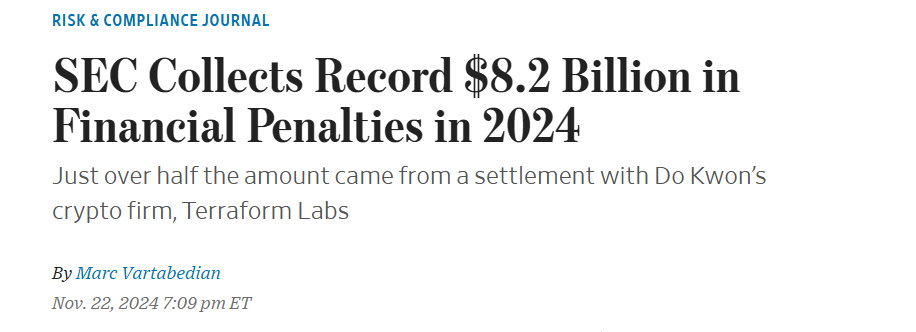
Example: The SEC took action against a major cryptocurrency exchange for misleading users about fund security, emphasizing its proactive approach to safeguarding investor interests in traditional and emerging markets.
c. Regulating Crypto Trading:
With the rise of digital assets, the SEC has expanded its responsibilities to include cryptocurrency oversight. The agency uses the Howey Test to determine whether a crypto asset qualifies as a security, thereby requiring registration and compliance.
Recent Developments: Lawsuits against Ripple Labs and Coinbase highlight the SEC’s efforts to establish clear regulatory boundaries in the crypto market. These cases seek to determine whether crypto platforms are operating within the scope of US securities laws, reinforcing market fairness and transparency.
Through these responsibilities, the SEC ensures that investors are protected and markets remain trustworthy and efficient.
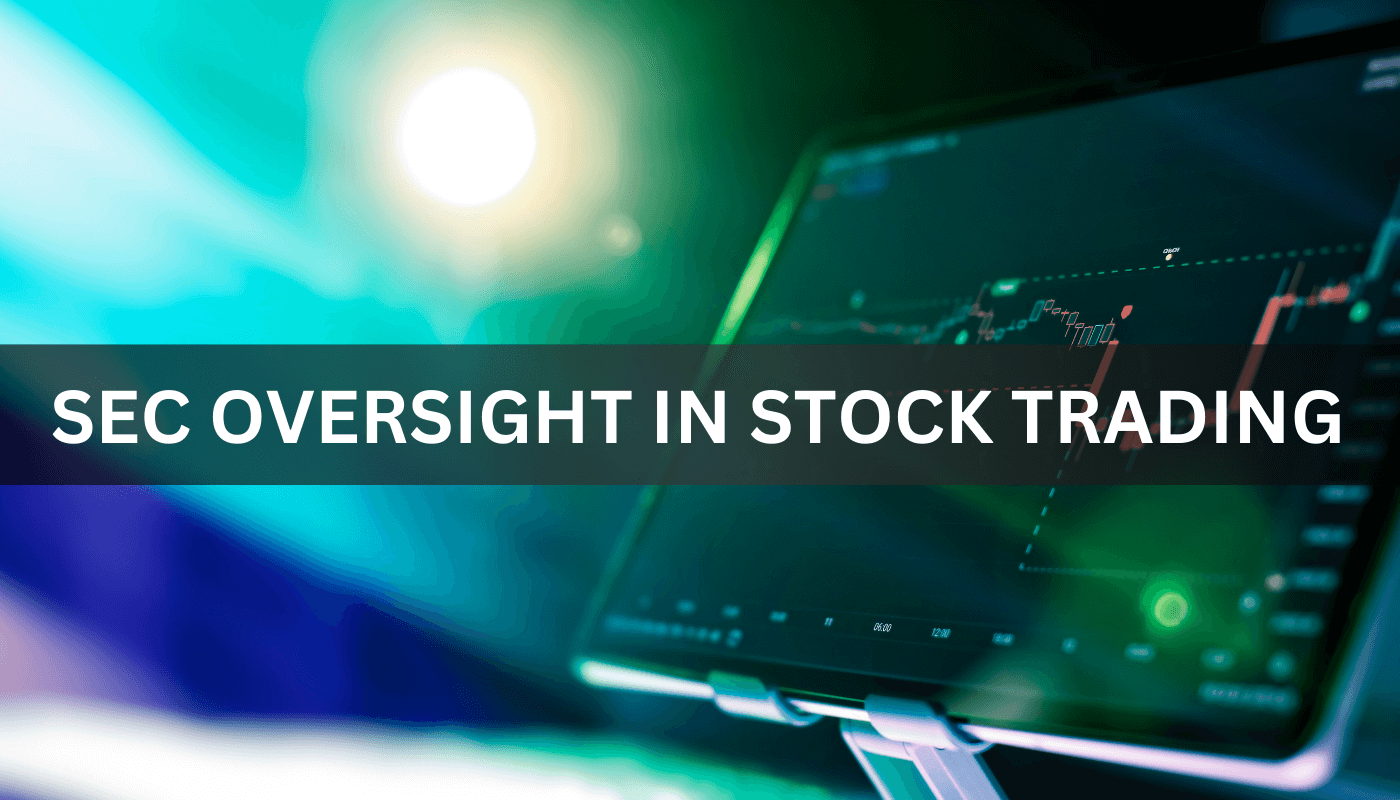
SEC Oversight in Stock Trading
The SEC plays a vital role in ensuring fairness and transparency in stock trading through its comprehensive oversight mechanisms:
a. Transparency in Markets
The SEC enforces strict reporting requirements for publicly traded companies to maintain market transparency.
Example: Companies are required to file quarterly (Form 10-Q) and annual (Form 10-K) reports, providing investors with reliable financial and operational information. In 2023, over 4,000 companies complied with these filings, enhancing investor confidence.
b. Monitoring Market Manipulation
The SEC actively detects and penalizes practices like pump-and-dump schemes and insider trading. For example, during the GameStop short squeeze in 2021, the SEC launched investigations into market manipulation, ensuring accountability among traders and brokers.
c. Broker-Dealer Regulation
The SEC licenses and regulates brokers to safeguard client interests. For example, the introduction of Regulation Best Interest (Reg BI) in 2020 requires brokers to act in their clients' best financial interests, fostering trust among retail investors.
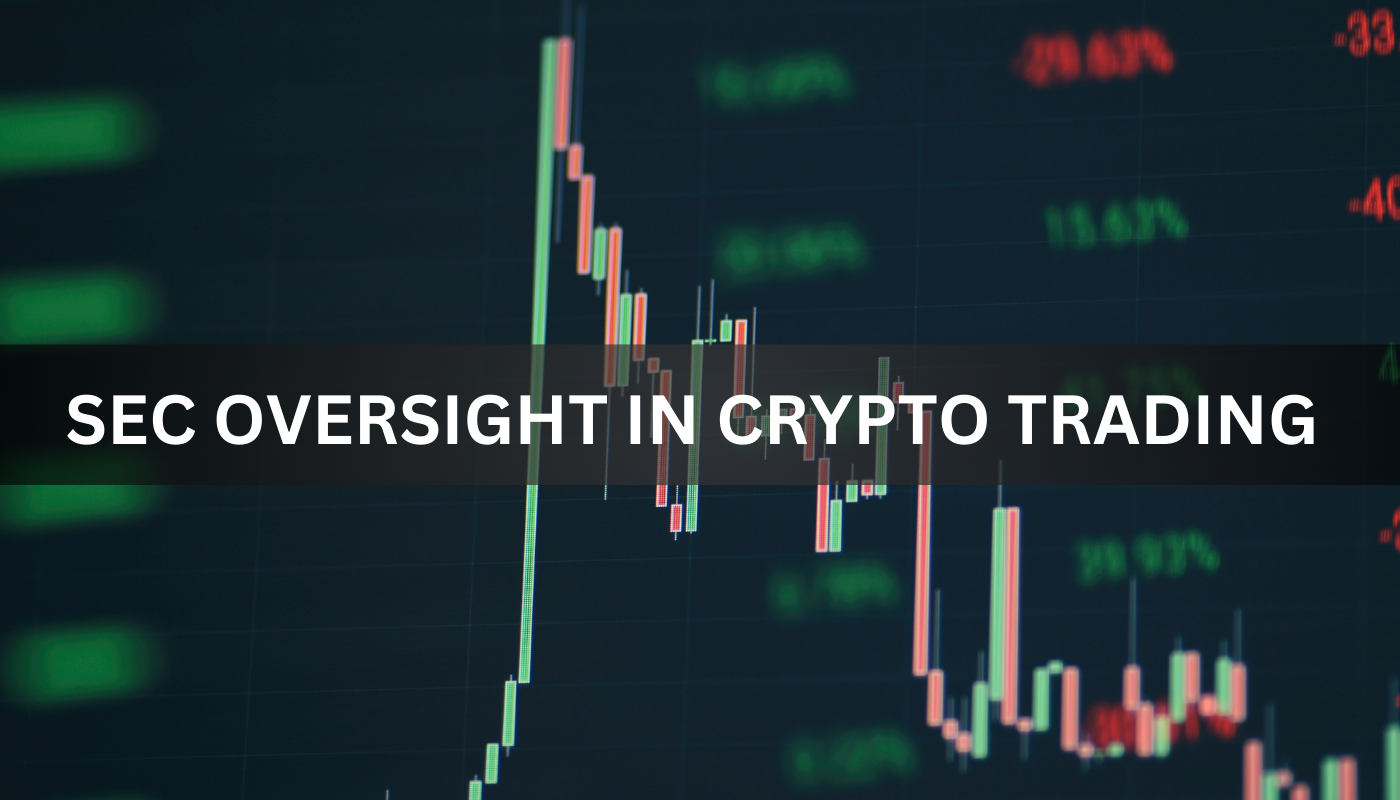
SEC Oversight in Crypto Trading
The SEC has expanded its regulatory framework to address the rapidly growing cryptocurrency market, focusing on investor protection and market integrity.
a. Defining Cryptocurrencies as Securities
The SEC applies the Howey Test to determine whether a digital asset qualifies as a security, requiring it to adhere to securities laws. In its case against Ripple Labs, the SEC alleged that XRP tokens were sold as unregistered securities, sparking a significant debate on crypto classification.
b. Monitoring Crypto Exchanges
The SEC mandates that crypto platforms offering trading, lending, or staking services register to ensure compliance with securities laws. Coinbase faced enforcement actions in 2023 for operating without proper registration, highlighting the SEC’s efforts to regulate exchanges.
c. Investor Protections in Crypto Markets
The SEC requires firms to disclose risks tied to digital assets, ensuring investors are informed. For example, the SEC issued warnings about crypto market volatility, emphasizing potential losses to retail investors.

Investor Protection Measures
The SEC implements robust measures to safeguard investors and maintain market trust. Its initiatives encompass transparency, education, and accountability.
a. Whistleblower Program
The SEC incentivizes individuals to report violations of securities laws, ensuring misconduct is promptly addressed.
Example: In 2024, the SEC awarded over $40 million to whistleblowers whose information led to enforcement actions, reinforcing market fairness.
b. Investor Education Initiatives
Through its Office of Investor Education and Advocacy, the SEC empowers individuals with knowledge to make informed decisions and avoid risks.
Example: Public campaigns on identifying crypto scams and the dangers of speculative trading have reached thousands of retail investors.
c. Enforcement Actions
The SEC imposes significant fines and penalties to deter market misconduct.
Example: In 2023, the agency levied over $4 billion in penalties, including violations in the crypto sector, signaling its commitment to investor protection.

Benefits of SEC Regulation
The SEC plays a crucial role in fostering trust and stability in the financial markets:
- Market Stability: Through transparent and efficient markets, the SEC promotes investor confidence. Example: Swift actions during events like the 2020 market volatility ensured order and minimized disruptions.
- Investor Protections: Measures such as the Investor Protection Fund compensate victims of fraud, reinforcing security. Example: The fund has safeguarded countless investors from financial losses due to corporate misconduct.
- Global Leadership: The SEC’s robust regulatory framework serves as a model for financial regulators worldwide, enhancing cross-border market collaboration and integrity.
SEC vs. Other Regulators
- SEC vs. CFTC: The SEC regulates securities, while the CFTC oversees commodities and derivatives. Example: Bitcoin is classified as a commodity under the CFTC, while most altcoins fall under the SEC's jurisdiction, leading to disputes over oversight.
- SEC vs. FCA (UK): The UK Financial Conduct Authority (FCA) implements stricter rules for crypto platforms compared to the SEC. Example: The FCA mandates registration and rigorous compliance for crypto firms, while the SEC has faced delays in defining its role in digital asset regulation.
Unique Strengths of the SEC: The SEC’s global influence and comprehensive enforcement powers make it a leading authority in financial regulation, serving as a benchmark for regulators worldwide.
Conclusion
The SEC plays a crucial role in regulating stock and crypto trading, ensuring transparency, investor protection, and market stability. By maintaining strict oversight and enforcing securities laws, the SEC fosters trust and integrity in the US financial markets.
Before trading, verify your brokers and platforms are SEC-compliant to ensure a secure and regulated experience. Ready to trade confidently? Explore trusted SEC-regulated brokers on WhereToTrade and start your journey toward secure and successful trading today!
Table of contents
1. What is the SEC? 2. Key Responsibilities of the SEC 3. SEC Oversight in Stock Trading 4. SEC Oversight in Crypto Trading 5. Investor Protection Measures 6. Benefits of SEC Regulation 7. SEC vs. Other Regulators 8. Conclusion






